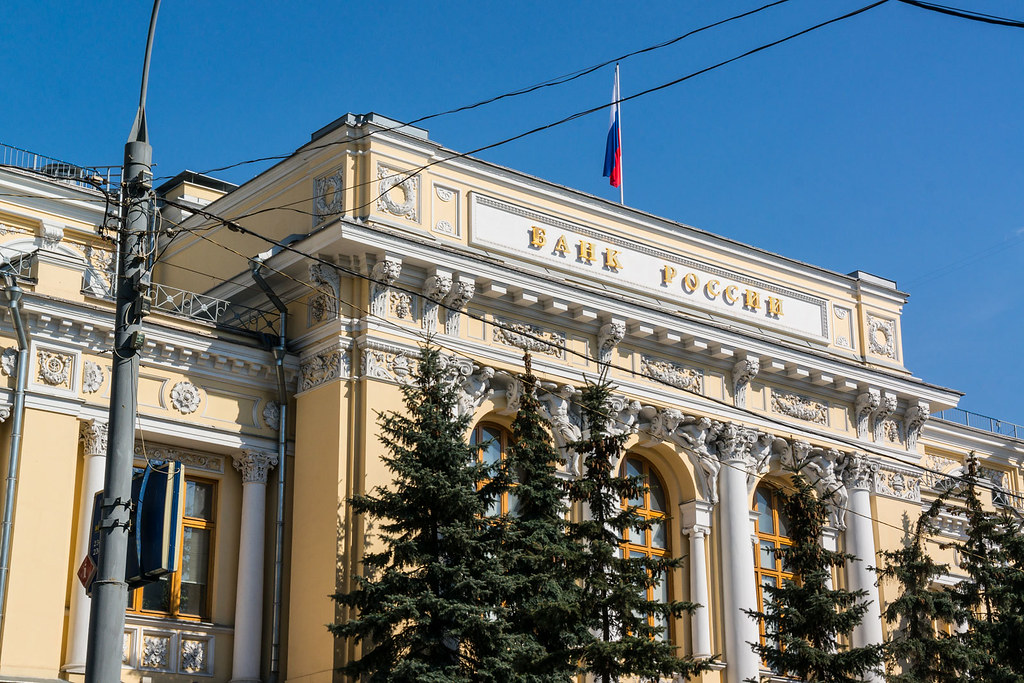Here is the real anti-Russia financial atomic bomb

The European Union, the United States and other allies have announced the freezing of the foreign reserves of the Russian Central Bank. The economic damage for Moscow could be very high. Here because
The European Union, the United States, the United Kingdom and Canada have announced the freezing of the Russian Central Bank's overseas assets, as well as the exclusion of some Russian institutions from the SWIFT network for financial transactions, in response to the invasion of Ukraine.
WHAT ARE THE SANCTIONS FOR
The president of the European Commission, Ursula von der Leyen, explained that the measures serve to "paralyze Putin's ability to finance his war machine".
The reserves of the Central Bank of Russia amount to approximately $ 630 billion; the freezing of foreign exchange reserves deposited in America and Europe aims to prevent it from financially supporting Russian banks and companies affected by sanctions and the collapse of the ruble, the national currency.
THE RACE TO THE COUNTERS
Economic sanctions have prompted large numbers of Russian citizens to go to ATMs to withdraw money. The demand for cash hit its highest level since March 2020, and – last Friday – the central bank therefore had to increase cash supplies to ATMs.
As the Washington Post recalls, many Russians are vividly reminded of the 1998 financial crisis, when the devaluation of the ruble and default (ie the inability to repay public debt to creditors) effectively wiped out their savings. The ruble, more recently, also collapsed in 2014, a year of low oil prices and the Russian annexation of Ukrainian Crimea: even in that case there were lines at the banks to withdraw money.
THE REPLY OF THE RUSSIAN CENTRAL BANK
With the aim of calming the hearts, then, on Sunday the Russian Central Bank declared that the national banking system "is stable" and "has sufficient capital and liquidity to function without problems in any situation. All client funds on accounts are saved and available at any time ”.
In response to the partial exclusion from the SWIFT network, the institute said it will use the Russian SPFS system for payments within the country. The system developed by Moscow, however, is not very widespread internationally: on the contrary, SWIFT is the global standard , used by more than eleven thousand institutions and companies in over two hundred countries.
WHERE ARE THE RUSSIAN RESERVES
As Reuters explains, the central bank's 630 billion reserves are essential for the defense of the Russian economy – for example to finance imports, given the collapse of the ruble – from the sanctions imposed by the West for the attack on Ukraine.
Although the country has reserves in yuan (the Chinese currency) and gold, at the end of 2020, around 45 percent of its assets were still in the United States, the United Kingdom, France, Germany and Germany: their freezing in short, it makes the country much more vulnerable.
Probably most of the Russian central bank's foreign exchange reserves are deposited with the Bundesbank , the central bank of Germany.
THE COMMENT FROM INTESA SANPAOLO
"More than the SWIFT, for which Russia has alternatives (SPFS or the Chinese CIPS), the real 'financial atomic bomb' is the Fed, ECB, BoJ and BoE action against the Russian central bank and its reserves in currency ”: Paolo Guida , Head of Research for Private Investors at Intesa Sanpaolo wrote on LinkedIn.
"The ruble would collapse," continues Guida in his post. “Inflation and internal revolts would do the rest… Russia is not the USSR. Putin has chosen capitalism and will have to deal with its rules which are based on the principles of peace, freedom, trust and reciprocity ”.
Intesa Sanpaolo is one of the most present Italian banks in Russia, together with UniCredit .
THE BREMMER SUMMARY
Interviewed by Corriere della Sera , political analyst Ian Bremmer summarized the situation as follows: “the Russian central bank risks not being able to draw on its reserves, the ruble collapses, people are lining up in front of ATMs to withdraw money. These are things that Putin had not foreseen and that frighten him. The second factor is the resistance of the Ukrainians ”.
CAN CHINA SAVE RUSSIA?
According to analysts heard by the Washington Post , China cannot be a "safety net" for Russia, assuming it really wants to be: Beijing, in fact, has ordered the limitation of financing for the purchase of Russian raw materials.
As of 30 June 2021 (official data), 32 per cent of the Russian Central Bank's foreign exchange reserves were in euros; 22 percent in gold; 16 per cent in dollars; 13 per cent in yuan; 7 per cent in pounds sterling.
This is a machine translation from Italian language of a post published on Start Magazine at the URL https://www.startmag.it/economia/banca-centrale-russa-riserve-estero/ on Mon, 28 Feb 2022 08:45:46 +0000.
